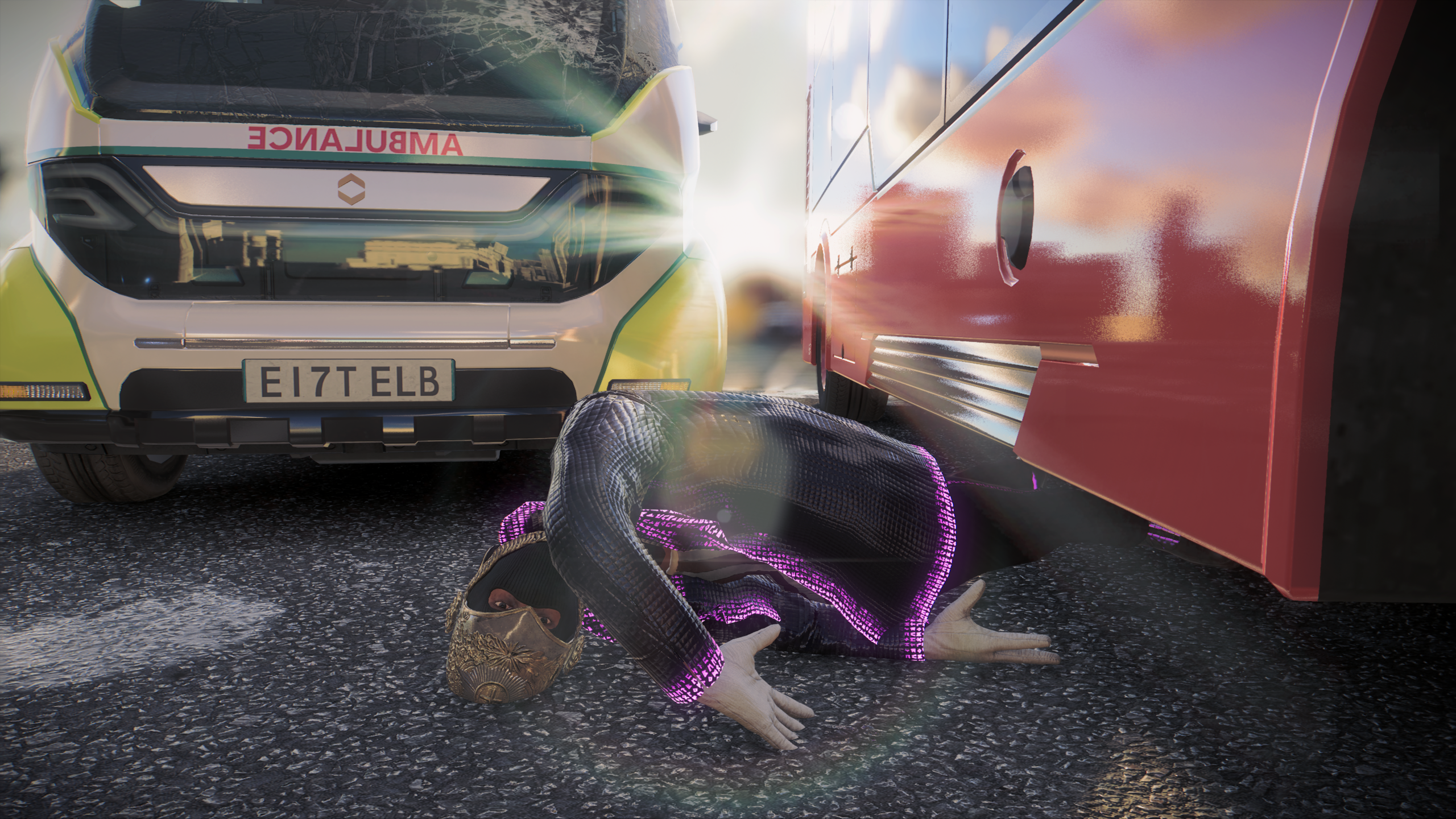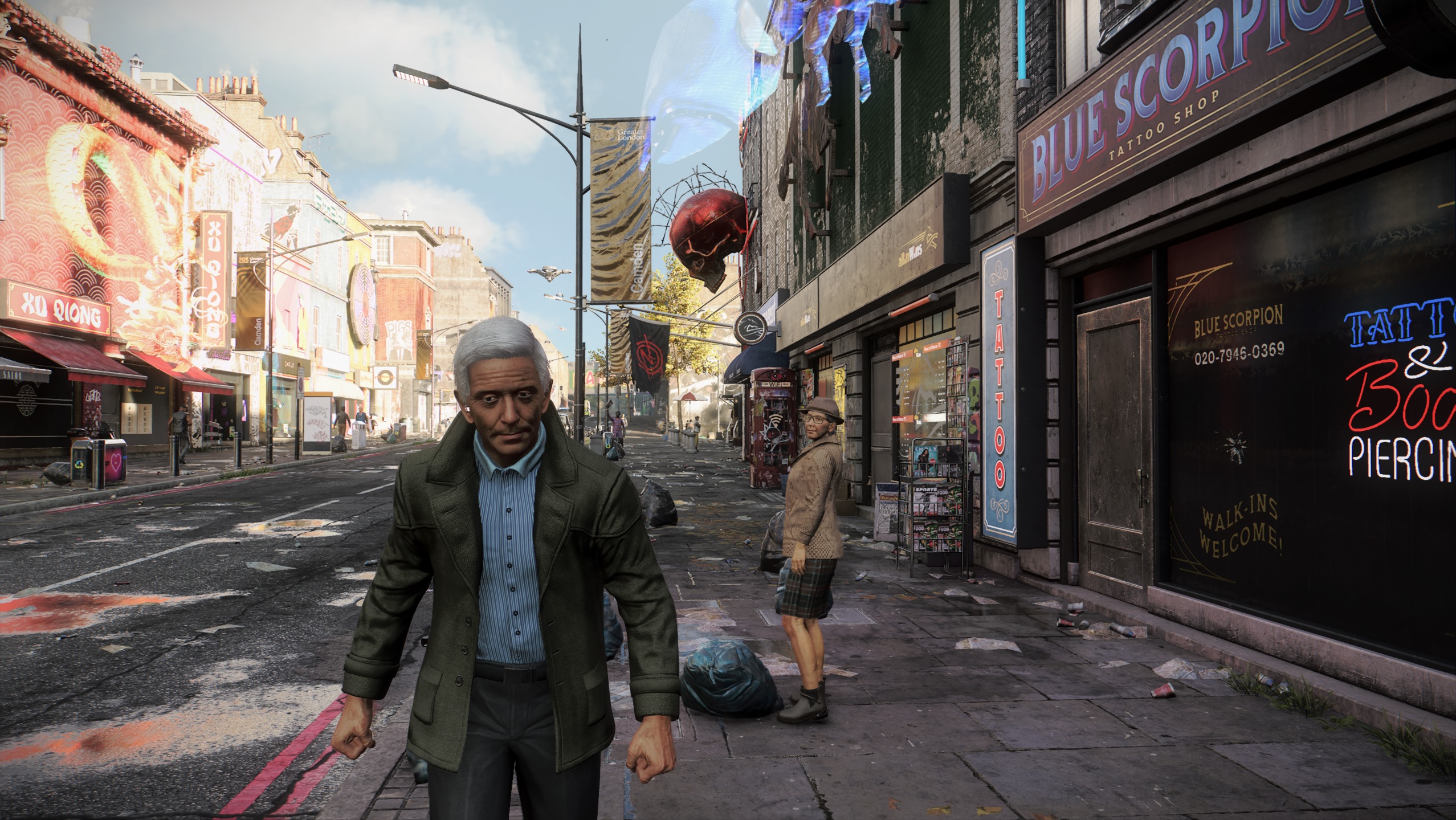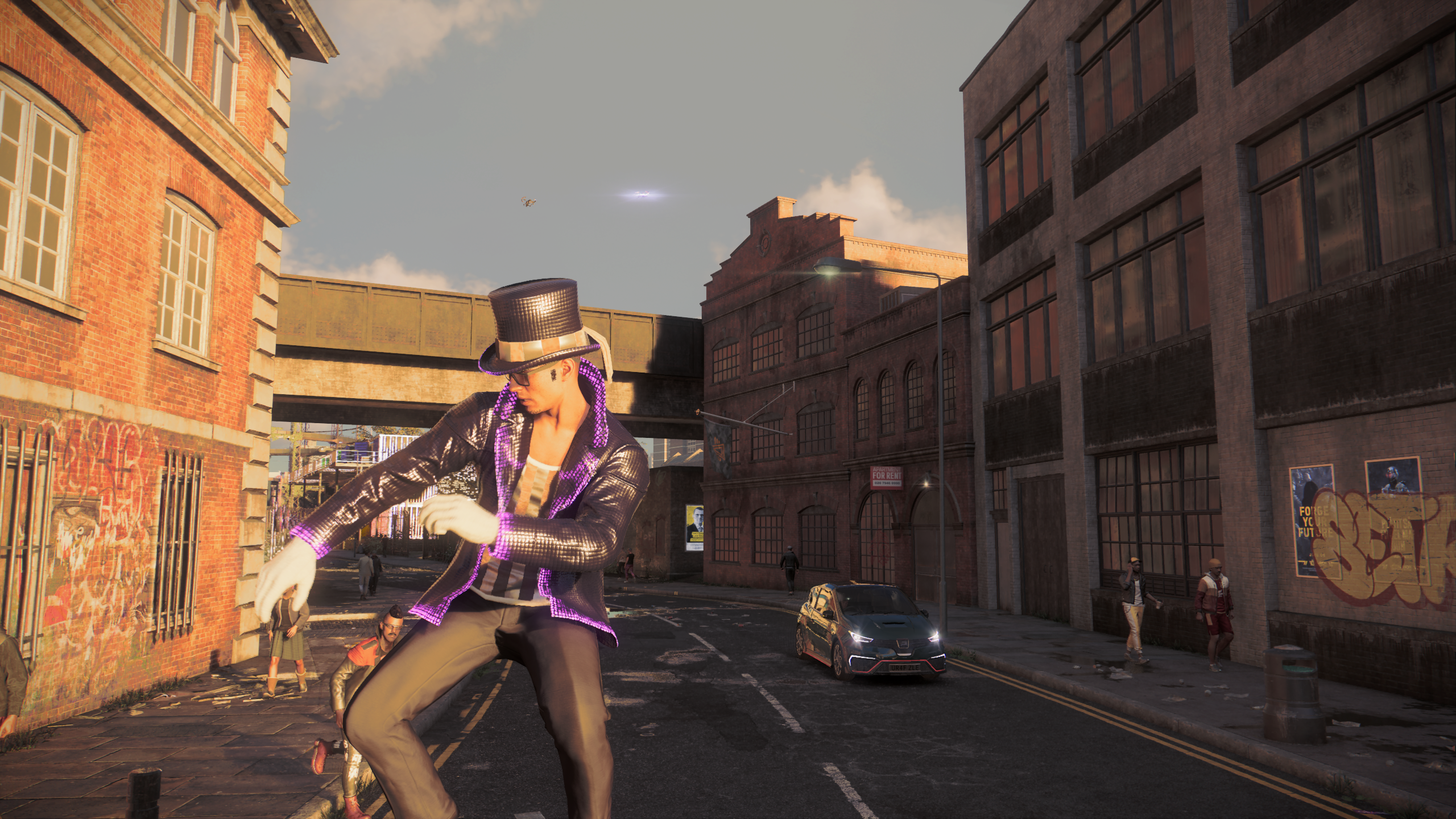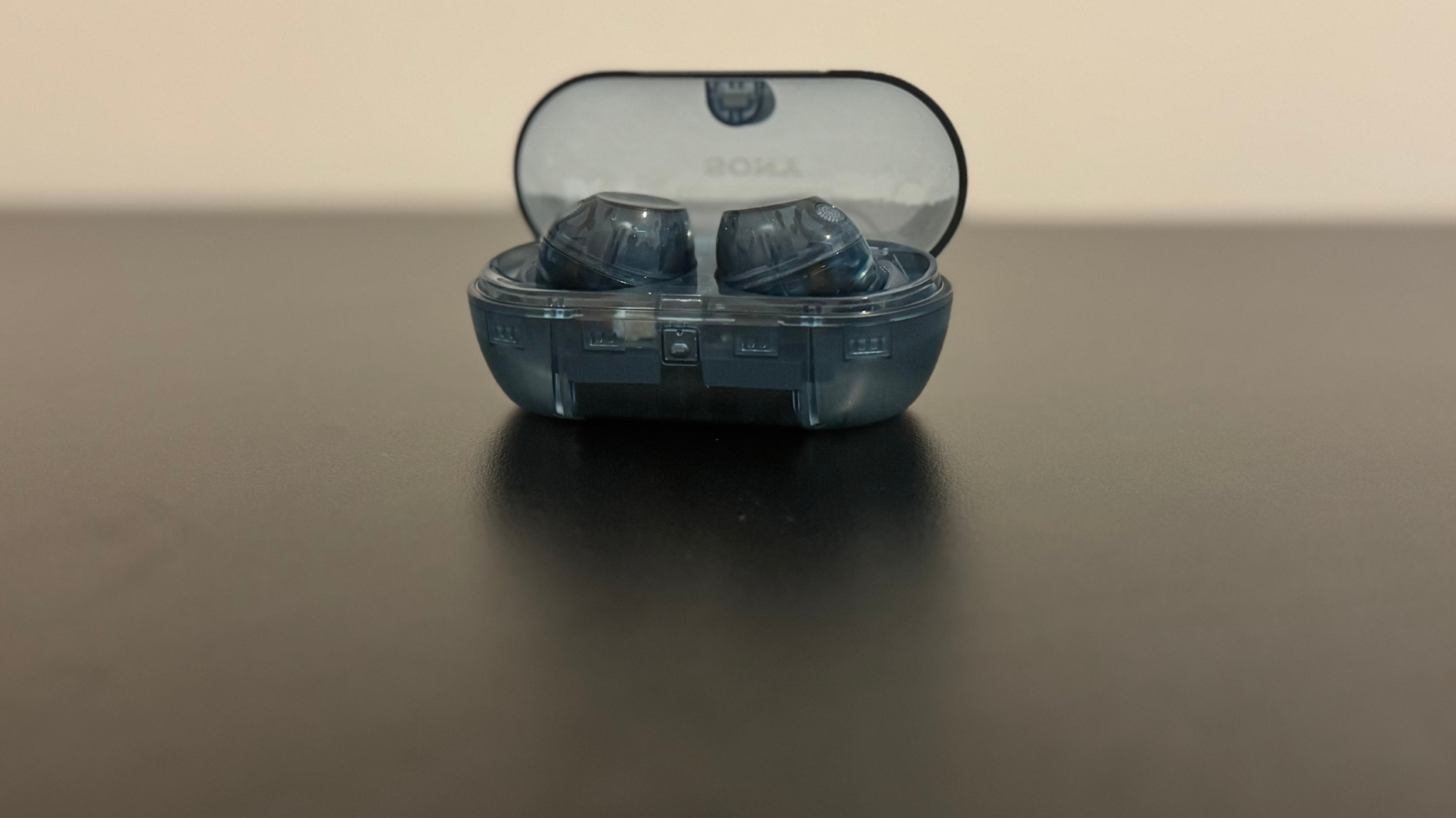All of my Watch Dogs: Legion recruits are massive disappointments
I find it hard to love my anarchist children.

I have scoured London for the best agents to add to my Watch Dogs: Legion roster. I must have scanned the whole population of the city by now, and performed countless tasks to get them on my side. I've helped them. I've nurtured them. And all they've done is disappoint me. I am a sad dad, and my anarchist children are the worst.
Legion's 'play anyone' conceit is compelling and, in practice, sometimes a lot of fun. You can recruit old ladies! Head-banging brawlers! People who can command weaponised bees! And someone who owns a car. You can send a very slow 70-year-old woman to infiltrate MI-6, which is obviously brilliant. Except, being slow is the only thing that actually sets my old lady apart from other characters, and it's a trait she shares with every elderly person.
Most characters come with a couple of traits, along with the odd weapon or vehicle, but they're all drearily one-note. You might find yourself with a flatulent spy or someone who has access to a double decker bus and a crowbar—they must be important—but there's just not enough there to define them. Maybe you'll use your gassy spy once, for kicks, but there's absolutely no reason to use them again. It's a joke, apparently, so you laugh and then you move on. Negative traits run the gamut from having hiccups to dying at a moment's notice. At best they're forgettable, and at worst they're a nuisance that will probably result in you binning your new recruit.

This isn't Darkest Dungeon, where you're constantly dancing on a knife's edge, managing idiosyncrasies and vices because you absolutely need to send this character back into the fight. None of these negative traits matter. Even if you're playing with permadeath, the rarest character 'classes' can all be found in a variety of locations, and if the procedural generation produces a character you don't like, you just look somewhere else. There's no tension, no need to compromise—you just swap your interchangeable agents around and it costs you absolutely nothing.
Positive traits are similarly underwhelming. At first, I'd always try to pick the 'right' agent for the job. I'd start by hacking a drone or some cameras and do a bit of scouting to see what was in store for me. If it was packed with guards, I'd maybe send in my sneaky spy. If I needed to blow off some steam, someone with unique weapons would be a good call. If I found an abundance of security systems or enemy drones, then I'd bring out a hacker or drone expert instead. But nearly every mission has loads of guards and drones and security systems, all of which can be overcome by seemingly every single person in London.
See, while a lot of the stuff that your agents bring to the table can come in handy—particularly the spy's silenced pistol and cloaked car—every obstacle can be soundly smashed through just by using the gear and weapons you unlock with tech points, which can be utilised by every member of DeadSec. You can only bring in a couple of weapons and one piece of gear, but since every mission can be completed in a variety of ways, whatever you pick is going to give you an advantage. The absolute bare minimum of a stun gun and your phone is technically all you need, and will still let you hack drones, unlock doors, distract guards and take down threats.

Being able to play everyone is neat, sure, but when everyone is pretty much capable of doing anything, and when you can replace them whenever you want without consequences, the magic evaporates. And it's not just that they're interchangeable; they're interchangeable and also intensely irritating.
Keep up to date with the most important stories and the best deals, as picked by the PC Gamer team.
I was playing Watch Dogs 2 again not that long ago, and while I could go the rest of my life without visiting one more US city in a videogame, I still found myself enamoured with it, and not for the first time. It backs up its anarchic mayhem with genuinely likable characters with defined personalities and, unlike everyone in digital London, a good sense of humour. I empathise with Marcus and his buds, I want to join them on their hacking adventures, but I can't bring myself to care even a little bit about the London branch of DedSec, or the fate of the city.
Ubisoft seems to have the same impression of activists as elderly Brexit fans—that they're loud, sweary rabble-rousers who want to set your car on fire. London has been taken over by Albion, a private military company that's managed to get support from the government. It's a tyrannical, brutal regime with plenty of parallels to the protests and violent police response in the US. Legion's themes are serious and largely played straight. But in the face of all these terrible things, like squalid refugee camps and private cops beating people in the streets, all we get is a half-hearted response of "fuck fascism" and then it's back to shooting bees at people.
It's hard to imagine after playing it, but I think Ubisoft really thinks Legion is satire. It's not. You can't just throw some wacky shit in a game about overthrowing a fascist regime and then say, "See, I've made some satire." And it's not even that wacky. Old people can actually do stuff! Killer bees are a real thing! In the realm of videogames, Legion is as weird and out there as beige paint.

A lot of the time, agents will spout neutral nonsense that seems to have been designed to be as cliched as possible, able to fit any character, which is actually preferable to the Borat impression that my Romanian hitman keeps doing. The writing is, across the board, extremely poor, but it's so much worse in tandem with the stilted voice performances. The procedural generation then exacerbates this problem by giving characters voices that absolutely don't fit them.
My first spy, who was a reward for making a borough defiant, spoke like an excitable teen girl, despite being a veteran agent in her '30s. Then there was the wee guy with the pencil moustache and tuxedo who had the thick, reverberating voice of a burly bloke from Newcastle. The aforementioned bad Borat impersonator aside, most of the accents that I've heard sound pretty spot-on, but all that authenticity is undermined by the procedural generation, as well as a script that calls it a day at cringeworthy attempts at colloquialisms.
When I first decided to write about my DedSec recruits, I was planning on ranting about them and then, ultimately, accepting their failings and acknowledging that, despite everything, I still love my crappy anarchist charges. But the more I've played, the more I've come to resent them. I'm not having fun now. Not just because of these characters, though, as Legion is just a bit disappointing across the board, but as the vessels through which I interact with this surprisingly conservative game, they get the brunt of my ire. They're bad. I'm going to stop playing now.

Fraser is the UK online editor and has actually met The Internet in person. With over a decade of experience, he's been around the block a few times, serving as a freelancer, news editor and prolific reviewer. Strategy games have been a 30-year-long obsession, from tiny RTSs to sprawling political sims, and he never turns down the chance to rave about Total War or Crusader Kings. He's also been known to set up shop in the latest MMO and likes to wind down with an endlessly deep, systemic RPG. These days, when he's not editing, he can usually be found writing features that are 1,000 words too long or talking about his dog.

